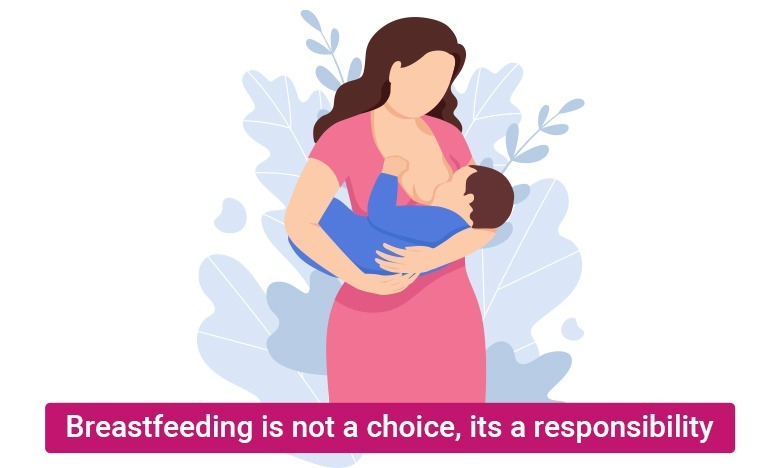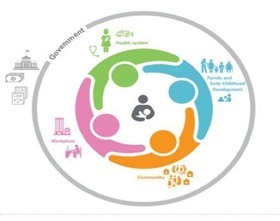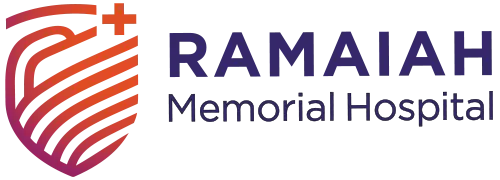Breastfeeding is not a choice, its a responsibility

Breast milk is a unique source of food for babies which contains all necessary nutrients that ensures the infant’s health, growth and development. Milk production in mother is regulated by the hypothalamic-pituitary tract, and its associated hormones Oxytocin and prolactin. The first milk is colostrum and is available after labor, rich in protein, sodium, and immunoglobulins and low in lactose. Breastfeeding can be classified as foremilk and hindmilk. Foremilk contains higher levels of lactose, while hindmilk contains a higher proportion of proteins and fats.
Breast Milk: an ideal baby food
Breast milk provides a baby with ideal nutrition. It is safe, clean and contains antibodies predominant IgA (sIgA), which help protect against many common childhood illnesses. Early rooming-in, where the neonate stays with the breastfeeding parent, is advised when possible.
Breastfeeding is also an important source of antioxidants, such as vitamin C and vitamin E, that prevent or reduce oxidative damages to various body tissues, also facilitates the synthesis of essential nutrients such as vitamins B12, B6, K, and folate. Early introduction of breastfeeding will colonize the neonatal gut with these safe micro-organisms. Lactoferrin in the breastmilk confers immunoprotection. Breastmilk contains higher levels of carnitine and is required for utilization of fatty acids as an energy source.
World Health Organization and United Nations Children’s Fund, IAP (Indian Academy of Paediatrics), Breastfeeding network of India and Infant (BPNI) and young child feeding (IYCF) chapter of IAP recommends initiation of breastfeeding within an hour of birth, exclusive breastfeeding for the first 6 months of life, Continued breastfeeding beyond 6 months and at least up to 2 years of age or more along with the introduction of nutritionally adequate and safe complementary.
Challenges Faced By The Working Mother:
Due to lack of skilled breastfeeding support during pregnancy and at birth, confusing and misleading marketing of commercial baby foods through social media, discrimination and exploitation at the work places, lack of creches, private and hygienic breastfeeding spaces, lack of support from family and friends, social stigma associated with breastfeeding in public places further complicates the situation.
Expressed Breast Milk
To address various techniques of breast milk expression to working mothers to encourage breastfeeding practice at home, even at workplace.
Methods like manually expression of milk by hand is an effective, comfortable economical, helps to trigger the milk ejection reflex. The breast should be expressed from one side for at least 3-5 minutes until flow slows, then express the other and then repeat on both sides. Expression of breastmilk adequately takes 20-30 minutes. The expressed milk can be stored for required duration depending on the temperature of storage.
At Room temperature (19- 26 degree) can be stored for 6-8 hours ,Refrigerator (<4 degree) for 72 hours to 8 days ,Freezer (-15 degree) for 2 weeks ,Deep freezer (-20 degree) for 6 to 12 months in a well fitted air tight tops, polypropylene plastics and glass containers, food grade plastic bags- long term storage ,steel containers for – short period.
Hence we encourage exclusive breastfeeding for all women for 6 months for nutritional, immunological, growth development of the baby ,also for benefits of the mother to strengthen the objective of “WORLD BREAST FEEDING WEEK 2023 -FOR WORKING WOMEN”
Breast feeding is not a one-woman job; it requires leadership and support from families, communities, workplaces and health system to really make it work.

Dr. Muskan Kataria
Department of Paediatrics


